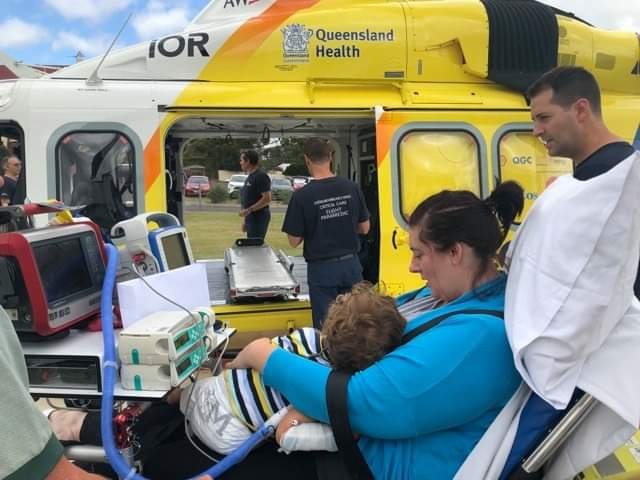About RSV
RSV can be devastating. The number one cause of hospitalisation in children aged under five and a leading cause of illness and hospitalisation in the elderly, RSV has a significant impact on Australian families and the healthcare system.
RSV – Know the Facts
What is RSV?
RSV (respiratory syncytial virus) is an unpredictable and potentially serious virus that causes seasonal outbreaks, usually during the winter months.
RSV can be mild, with cold-like symptoms, but can sometimes lead to more severe illness, including lung infections such as bronchiolitis or pneumonia.
How is RSV transmitted?
RSV is highly contagious and spreads easily between people through coughs and sneezes.
Natural immunity after an RSV infection is short lived and RSV re-infections can occur throughout life.
Who can contract RSV?
While anyone can contract RSV, it has the greatest impact on the youngest and oldest members of our community, who may develop lung infections such as bronchiolitis or pneumonia.
Almost all children will be infected with RSV before the age of two, however babies under the age of six months are more likely to develop severe symptoms.
RSV is also an under-recognised cause of illness in older people where it can cause infections in the airways, hospitalisation, and even death.
Who is at risk of going to hospital with RSV?
RSV is the number one cause of hospitalisation in Australian children under five years of age (almost 16,000 admissions each year), with one-in-four of these children requiring intensive care.
While most hospitalisations occur in otherwise healthy babies, some children have a higher risk of severe disease, including babies who are born pre-term, have chronic lung or congenital heart disease, and Aboriginal and Torres Strait Islander children.
Adults over 60 years of age are at high risk of severe RSV infection which may require hospitalisation.
People with certain medical conditions are at even greater risk, including those living with asthma, chronic obstructive pulmonary disease (COPD), heart disease, diabetes or chronic kidney disease.
What are the signs and symptoms of RSV?
The symptoms of mild RSV can be similar to many other respiratory viruses and include a runny nose, coughing, sneezing, wheezing, loss of appetite, and lethargy.
Because RSV can cause severe illness that requires medical care, it’s important to watch out for symptoms of severe RSV in infants and at-risk adults. Click here to understand the signs and symptoms of severe RSV.
Can RSV be prevented?
For the first time, RSV protection is a reality with new preventative therapies that have been proven to prevent severe lower respiratory tract disease and reduce hospitalisation rates. These immunisations are used to protect infants as well as older adults and people with underlying health conditions.
Click here to learn more about new RSV immunisations and their availability in Australia.
Resources
Fact Sheet - RSV in Older Adults
Infographic - Signs and Symptoms of Severe RSV in Infants
Video - Signs and Symptoms of Severe RSV in Infants







